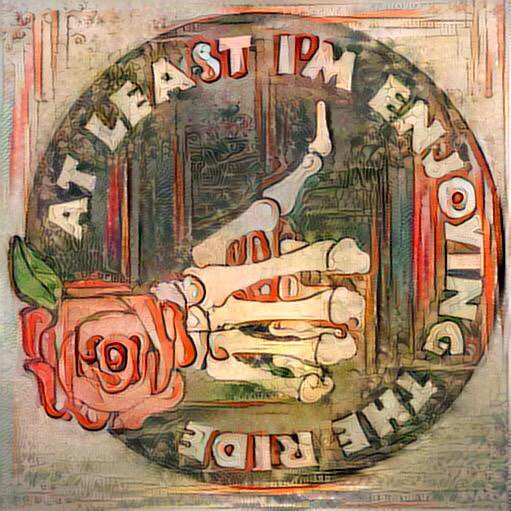Hola chicos,
What is learning a language without learning some slang & sayings? This week we have a great list for you:
Un tipo o un gallo – A guy – Ejemplo: ¡Ese tipo (o ese gallo) es muy guapo! Siempre me han gustado los hombres con pecas.
Dejar a alguien sin palabras – To leave someone at a loss for words; speechless – Ejemplo: Donald Trump me deja sin palabras con todas las estupideces que dice.
Dejar con el culo en el aire – To leave high & dry; to screw over – Ejemplo: Cuando se fue con el auto y me dejó en el restaurante solo me dejó con el culo al aire.
¡Me vale madre! (México) – To not give a crap – Ejemplo: Ya estoy harta de ella y me vale madre que no vaya.
¿Qué onda güey? (México) – What’s up dude? – Ejemplo: ¿Qué onda güey? ¿Cómo has estado?
Joder – To annoy, bug, piss-off; To screw over; Also used as an expression like “shit” – ¡Joder! – Ejemplo 1: ¡Los boletos para el concierto ya se agotaron! ¡Joder! – Ejemplo 2: Basta con eso que me estás jodiendo.
Caer gordo (México) – To rub the wrong way – Me cae gordo ese gallo. No sé por qué pero me cae mal.
Mala pata – Bad luck (when used with “que” it can also mean “how unfortunate”) – Ejemplo: Que mala pata que haya llovido el día de la boda. No tuvo mucha suerte.
Majo/a (España) – Nice or attractive – Ejemplo: Conocí a una chica muy maja el otro día. Es muy simpática.
No pegar ojo – To not be able to sleep – Ejemplo: Anoche no pude pegar ojo. El perro del vecino ladró toda la noche y no me dejó dormir.
¡Qué fuerte! – How shocking!; Wow! – Ejemplo: -Me despidieron de mi trabajo esta mañana. -Lo siento mucho. ¡Qué fuerte!
¡No manches! (México) – No kidding! No way! – Ejemplo: -Chile le ganó a México por 7 puntos. -¡No manches!
Cagarla – Holy crap!; Wow! – This can be good or bad – Ejemplo 1: Fue la mejor fiesta a la que he asistido en toda mi vida. ¡La cagó! – Ejemplo 2 – No puedo creer que hayas chocado por segunda vez esta semana. ¡La cagaste!
Creerse el hoyo del queque (Chile) – To think one is all that – Ejemplo: Esa mujer no es hermosa pero se cree el hoyo del queque.
La muerte (Chile) – Delicious – Ejemplo: ¡El queque te quedó la muerte! ¡Delicioso!
Costar una pasta gansa (España) – To be very expensive – Ejemplo: Uy, ese coche me va a costar una pasta gansa, pero vale la pena.
Tío/a (España) – Man, guy, dude, mate (but can also be used for women) – Ejemplo: Hola tío (a tu amigo) ¿cómo estás?
O sea – I mean; like; in other words – Ejemplo 1: Sí, soy Mexicana, o sea, nací y me crié en México. – Ejemplo 2: ¿O sea, qué te pasa?
Aquí hay gato encerrado – Something fishy is going on here – Ejemplo: Todo está muy tranquilo en el edificio, parece que hay gato encerrado. ¡Qué raro!
Perro que ladra no muerde – All bark no bite – Ejemplo: Siempre grita así, pero no te preocupes. Perro que ladra no muerde.
Estar hasta las narices de algo o de alguien – To be tired of something or someone – Ejemplo: Ya estoy hasta las narices con todas las estupideces que ha hecho. No puedo más.
Estar como loca o loco – To be crazy about something – Ejemplo: Estoy como loca con la nueva canción de Rihanna. La escucho todo el día.
¿Neta? (México) – Really?? or Truth – Ejemplo 1 : Te estoy diciendo la neta, no te miento. – Ejemplo 2: -¿Neta? -Sí, te juro.
Tener verbo (México) – To have game (with words/conversation, not necessarily with a potential mate) – Ejemplo: No sé cómo le hizo para que lo dejaran salir temprano…de seguro tiene mucho verbo.
Me duele hasta el pelo – To be very sick or tired – Ejemplo: No he dormido en 3 días con este resfriado. Me duele hasta el pelo.
Que bacanería (Colombia) – Fantastic, really cool – Ejemplo: ¿Vas a hacer un viaje de 6 semanas? ¡Que bacanería!
Which is your favorite?
Besos,
Caro





